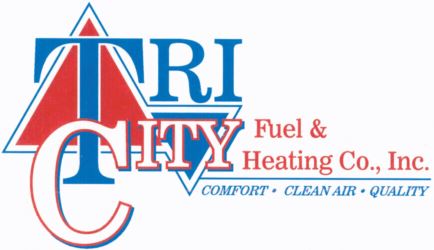
We spend lots of time inside. In reality, the Environmental Protection Agency (EPA) has estimated being inside accounts for 90% of our time. Having said that, the EPA also has found your indoor air can be three to five times more polluted than outdoors.
That’s because our homes are tightly sealed to boost energy efficiency. While this is good for your heating and cooling expenses, it’s not so great if you’re a part of the 40% of the population with respiratory allergies.
When outdoors ventilation is insufficient, pollutants such as dust and volatile organic compounds (VOCs) can get stuck. As a consequence, these pollutants can irritate your allergies.
You can improve your indoor air quality with clean air and routine housework and vacuuming. But if you’re still struggling with symptoms during the time you’re at home, an air purifier might be able to provide assistance.
While it can’t remove pollutants that have gotten trapped in your furnishings or flooring, it can help clean the air traveling across your home.
And air purification has also been scientifically confirmed to help lower some allergic symptoms, according to the American College of Allergy, Asthma and Immunology. It may also be helpful if you or someone in your household has lung trouble, like emphysema or COPD.
There are two kinds, a portable air purifier or a whole-home air purifier. We’ll examine the advantages so you can figure out what’s correct for your home.
Whole-House Air Purifier vs. Portable Air Purifiers
A portable air purifier is for one room. A whole-house air purifier accompanies your heating and cooling system to treat your full home. Some models can clean independent when your home comfort equipment isn’t running.
What’s the Best Air Purifier for Allergies?
Go after an option with a High Efficiency Particulate Air (HEPA) filter. HEPA filters are used in hospitals and provide the best filtration you can buy, as they eliminate 99.97% of particles in the air.
HEPA filters are even more useful when used with an ultraviolet (UV) germicidal light. This dynamic mixture can eliminate dust, dander, pollen and mold, all of which are general allergens. For the ultimate in air purification, evaluate a unit that also has a carbon-based filter to decrease household smells.
Avoid using an air purifier that makes ozone, which is the primary component in smog. The EPA advises ozone could worsen respiratory issues, even when discharged at minor concentrations.
The Allergy and Asthma Foundation of America has made a list of questions to consider when purchasing an air purifier.
- What can this purifier extract from the air? What doesn’t it take out?
- What’s its clean air delivery rate? (A better figure means air will be cleaned more rapidly.)
- How regularly does the filter or UV bulb need to be replaced]? Can I complete that without help?
- How much do new filters or bulbs cost?
How to Reduce Seasonal Allergy Symptoms
Want to get the {top|most excellent|best] results from your new air purification equipment? The Mayo Clinic suggests completing other measures to decrease your exposure to seasonal allergy triggers.
- Stay indoors and keep windows and doors shut when pollen counts are high.
- Have someone else cut the lawn or pull weeds, since these tasks can trigger symptoms. If you have to do these jobs yourself, consider using a pollen mask. You should also rinse off immediately and change your clothes once you’re done.
- Avoid hanging laundry outdoors.
- Turn on air conditioning while at your house or while driving. Consider adding a high efficiency air filter in your house’s heating and cooling system.
- Even out your residence’s humidity saturation with a whole-house dehumidifier.
- Hardwood, tile or linoleum are the suggested flooring types for decreasing indoor allergens. If your residence has carpet, install a HEPA filter on your vacuum cleaner.
Let Our Specialists Handle Your Indoor Air Quality Requirements
Want to progress with adding a whole-house air purifier? Give our professionals a call at 803-592-9776 or contact us online to get an appointment. We’ll help you choose the ideal unit for your house and budget.


